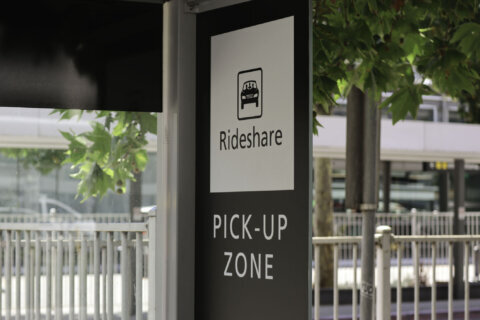
This time of year, as the weather gets warmer, days feel brighter and your vacation feels like it’s just around the corner (well, even if it’s many weeks away, at least it’s somewhat in sight). And with vacation planning comes taking time off of work. According to results from the Alamo Rent a Car Family Vacation Survey, for many, this is a more difficult proposition than it should be.
The survey tracked the rise of vacation shaming in the workplace. As in, workers being made to feel a sense of shame or guilt for taking time off to go on vacation.
[See: How to Quit Your Job.]
The good news is that despite vacation shaming still existing, it’s slightly less prevalent than last year. In 2018, 41 percent of workers surveyed said they’ve felt vacation shamed compared to last year’s 49 percent. Moreover, fewer workers thought their peers were serious when they shamed them for going on vacation (41 percent in contrast to 53 percent from last year).
Seventeen percent said feeling vacation shamed could potentially keep them from planning or going on vacation, whereas last year 25 percent felt that way. Fewer workers confessed to shaming — 27 percent compared to 36 percent last year — though let’s hope that number also decreases next year. For people who do indeed shame, they’re downright serious when they do.
[See: The 25 Best Jobs of 2018.]
So what are some strategies to handle it? Let’s keep our eyes on the prize: You work hard the entire year, you deserve this time off (even if you’re freelancing and won’t technically get paid time off, if you alert your clients ahead of time and have a case-of-emergency and back-up plan, yes, you deserve to log off).
— Determine if it’s one bad apple in the bunch or your work culture. Is it one person, such as your co-worker, creating this toxic element for the time that you earned? Is it an entire group putting peer pressure on you before you depart or after you return, making you feel guilty for going away even for a few days, even though you may check messages while you’re out of the office anyway?
— If it is indeed one person, create boundaries and professional responses: “I still managed to get my work done, my boss approved the time, so it seems like a non-issue.”
— If it’s your boss, it’s much more challenging, but you can still stand your ground to prove you not only need this vacation, your work will still get done and you will thrive upon your refreshed return.
— And if it’s an overall company culture and you’re feeling shameful from all angles in a work-yourself-to-the-bone culture that’s weary and plummeting your morale, then consider this a gift. Start looking for a new job! There are countless employers who covet a well-rested, happy, productive worker. Find a company that’s a much better fit so this time next year you won’t stress out about your vacation, even if it’s a staycation and you’re staying in your very own home.
As a footnote, when you go on job interviews, it’s not only important to find out the personal day policy and flexible work arrangements overall and the culture therein, but it’s critical to see how they react. Do they talk the talk as well as walk the walk? Are they flexible with start dates or willing to grant vacation time for a major life event not long after you would start?
Many candidates don’t mention this during the first interview, but rather more into the process during the third round close to the offer and negotiation stage, which is a wise strategy. It’s a good idea to lightly mention it to see the employer’s response, not as a make-or-break situation. After all, it’s likely you booked this trip a while ago, but you need to see their reaction. Candidates may be stressed out about mentioning it, but the reality is, you’re going to need to ask for the time off anyway once you start, so get it out in the open and see if it’s an issue.
[See: The 8 Stages of a Winning Job Search.]
Does your prospective boss react by saying something like, “Oh wow, I don’t think that’s a good idea,” along with body language to show his or her disapproval?
Or, does he or she shrug it off, saying, “Everyone needs time off, this is good timing actually before you’re entrenched in the new job, bon voyage, looking forward to hearing about it!” Their reaction will speak volumes to how they covet (or shame) personal time off.
More from U.S. News
Tips for Surviving a Career Transition
The 10 Worst Jobs for Millennials
How to Handle Vacation Shaming in the Office originally appeared on usnews.com








